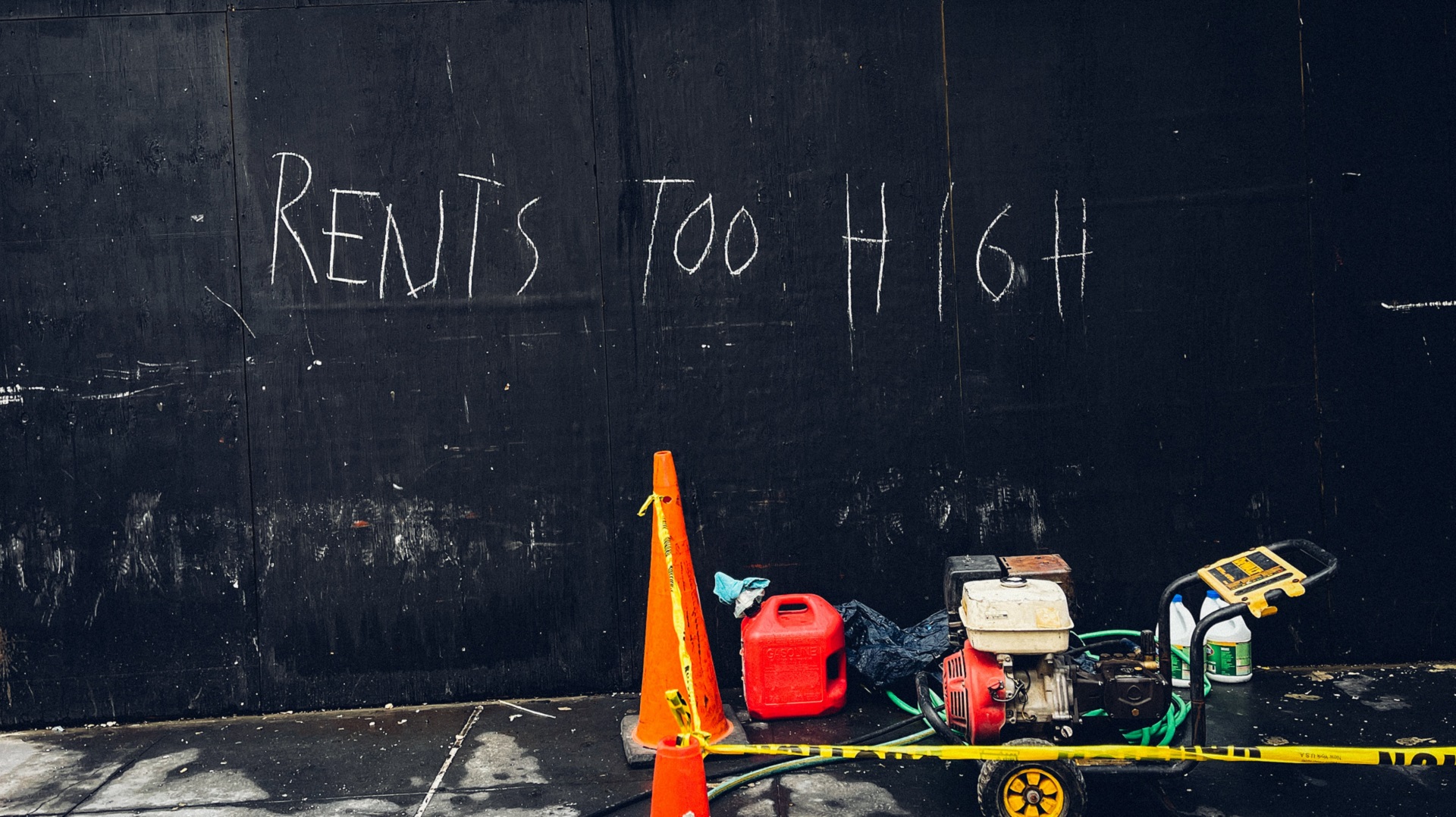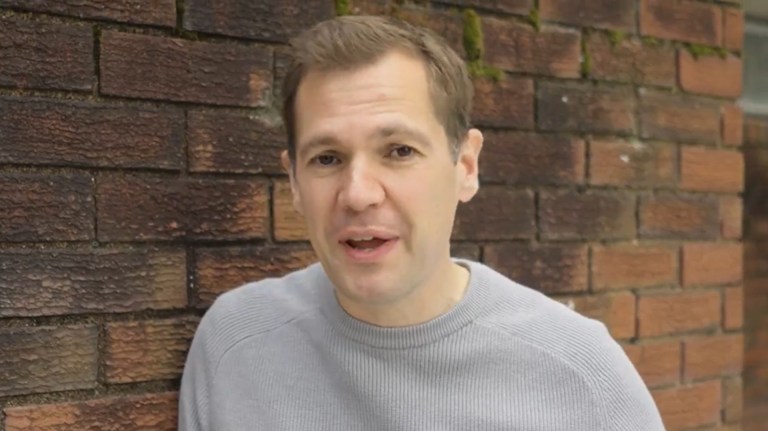”We rightly have caps on our energy and water bills, but the same protections don’t exist to stop landlords from hiking rents as they please. The government must act to urgently stop soaring rents before even more of us are priced out of our homes.”
The devolved countries in the UK have engaged with the issue of rising rents more directly than Westminster in recent years. The Scottish government limited rent increases and banned evictions until recently and are planning long-term rent controls. The Welsh government has also consulted on the idea of bringing in rent controls.
How much is rent in UK?
Around 4.7 million households use the private rented sector in England with 11 million renters. Around 450,000 households in Wales are private renters while 887,000 households renting in Scotland, including 323,000 renting privately.
The private rented sector is now the second biggest tenure of housing in England behind owner occupiers, making around a fifth of all households in the country.
The most recent ONS statistics show average rents increased 7.1% annually to £1,394 a month in England, rose 8.5% to £799 in Wales and 4.5% to £999 in Scotland in the year up to February 2025.
Renters in London are seeing rents 7.7% higher than in May 2024 at an average price of £2,235. The highest average rent across the UK is found in the London borough of Kensington and Chelsea at £3,643 a month.
Advertising helps fund Big Issue’s mission to end poverty
Private rents are rising at the fastest rate in the north-east of England, up a record-high 9.7% in the last year. However, rents in the North East are considered the lowest on average in England at £733 a month.
Rents are rising at the lowest rate in Yorkshire and The Humber, up 3.7% annually.
Around 1.2 million private rented households have reported finding it difficult to pay rent, according to the English Housing Survey.
The Westminster government unfroze local housing allowance in April 2024 but tenants on low incomes are still facing a challenge to keep up.
Labour declined to help renters keep up with rising rents when chancellor Rachel Reeves opted not to raise local housing allowance in line with the bottom 30% of market rents.
With housing benefit frozen and universal credit rising by 1.7% in April 2025, people on low incomes are being locked out of the private rented sector with many facing homelessness.
Advertising helps fund Big Issue’s mission to end poverty
Rents have increased around £100 a month since LHA rates were last uprated, Renters’ Reform Coalition’s Tom Darling said.
“These unaffordable rent increases are driving families out of their homes and communities – we are very disappointed the government have frozen housing benefit,” said Darling.
“This government’s number one milestone is putting money back in the pockets of working people. But every year, landlords are taking money out faster than wages or benefits can put it in.
“Building more social housing is critical, yet this alone will not address this affordability crisis – we need to see serious action to make renting more affordable. That means a cap on rent increases now, to keep more tenants in their homes, and a national rental affordability commission to look at ways to bring down the cost of renting in the longer term.”
Households have faced rising bills and food costs in recent years as part of the cost of living crisis and there is no respite when it comes to housing costs.
But there has been little action on the issues driving rising rents, namely high demand for properties and a lack of supply.
Advertising helps fund Big Issue’s mission to end poverty
Research from Zoopla found the price of new lets has risen by 21% in the last three years, dwarfing house prices that have increased by 4% over the same period
Why is UK rent so high?
The short answer to why rent is so high is because there is a shortage of affordable housing.
There is a housing crisis in the UK because not enough homes have been built by successive governments in the last few decades at a time where social housing stock has been sold off to the private sector through Right to Buy or demolished and not replaced.
An estimate from the National Housing Federation found around 340,000 new homes should be supplied in England each year with 145,000 them to be affordable. Shelter has called for 90,000 social rent homes to be built each year for the next decade.
The previous Conservative government has previously targeted 300,000 new homes in England – a 2019 manifesto commitment – but failed to hit that mark. In 2023-24, 221,070 additional homes were recorded in England, including fewer than 200,000 newbuild homes, down 6% on the previous year’s total.
There have also been gloomy projections for the number of homes set to be built in the short-term future. Despite this, Labour has committed to building 1.5 million homes by 2029, including prioritising social rent homes to ease the demand on the private rented sector in the long-term.
Advertising helps fund Big Issue’s mission to end poverty
Chancellor Rachel Reeves announced £39bn would be invested in affordable housing at the recent spending review in a bid to hit that total.
Meanwhile, areas like Cornwall where tourism has seen a surge in short-term lets through the rise of Airbnb in recent years faces even more pressures on demand.
The private rental sector has picked up the slack in recent years and has doubled in size over the last two decades.
The stiff competition has seen rents on the market increase but many landlords have kept pace by putting up rents for existing tenants.
While generally speaking there is a shortage of private rental properties across the UK, the difference between supply and demand changes from region to region.
Will rent prices go down in 2025?
It’s unlikely that UK private rents will fall in 2025 but the rate at which rents are rising is now starting to fall.
Advertising helps fund Big Issue’s mission to end poverty
Rents on new lets are starting to hit the highest point of what tenants can afford and property portal Zoopla has declared the “rental boom is over”.
Zoopla research found that average rents for new lets rose by 2.8% in the year up to April. While rents were still record highs, this was significant as it represented the first time since rents started rising in 2022 that monthly increases dipped under the wider inflation rate.
Zoopla is forecasting annual rent inflation of around 3-4% in 2025..
Richard Donnell, executive director of research at Zoopla: “Rents rising at their lowest level for four years will be welcome news for renters across the country. The average annual cost of renting is over £2,500 a year higher than three years ago, the same as the increase in average mortgage repayments for homeowners,” said Donnell.
“While demand for rented homes has been cooling, it remains well above pre-pandemic levels sustaining continued competition for rented homes and a steady upward pressure on rents. The pressures are particularly acute for lower to middle incomes with little hope of buying a home and where moving home can trigger much higher rental costs.
“The rental market desperately needs increased investment in rental supply across both the private and social housing sectors to boost choice and ease the cost of living pressures on the UK’s renters.”
Advertising helps fund Big Issue’s mission to end poverty
Meanwhile, the National Residential Landlord Association has continually warned of a landlord exodus ahead of the introduction of the Renters’ Rights Bill driving up prices.
But the Resolution Foundation is forecasting a different reason for rents to rise and disputes the suggestion of landlords leaving the private rented sector.
The think tank said the surge in rent prices for new tenancies seen in recent times is set to filter into existing rents and could see payments rise by 13% over the next three years.
That is set to outstrip the 7.5% increase in wages forecasted by the Office for Budget Responsibility over the same period.
“With more families renting privately, and renting for longer too, these rent surges are a bigger problem for Britain, and require bolder solutions from policy makers,” said Resolution Foundation’s Cara Pacitti. “Short-term solutions include regular uprating of local housing allowance to support poorer families, and the ultimate longer-term solution is to simply build more homes.”
Labour’s Renters’ Rights Bill is expected to make it into law by the summer of 2025.
Advertising helps fund Big Issue’s mission to end poverty
The Labour government has promised to abolish no-fault evictions, which allow landlords to evict tenants without giving a reason, through its Renters’ Rights Bill after the Conservatives’ Renters Reform Bill failed.
The bill has faced criticism for its lack of action on making renting more affordable and the government has rejected introducing rent controls.
Labour has promised the bill will end bidding wars between tenants as well as giving renters stronger rights to keep pets and avoid discrimination if they have children or are in receipt of benefits.
What will the Renters’ Rights Bill mean for private rental prices? Time will tell.
Do you have a story to tell or opinions to share about this? Get in touch and tell us more. This Christmas, you can make a lasting change on a vendor’s life. Buy a magazine from your local vendor in the street every week. If you can’t reach them, buy a Vendor Support Kit.










